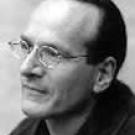Bertolt Brecht is a towering figure of European modernism. Nonetheless, many aspects of his work, despite its often acute relevance to our own society, are relatively unknown. The period around 1929 was an exceptionally productive and experimental one for him, as playwright, poet and theorist. Above all he began to develop new dramatic forms in order to address the social and economic turmoil he witnessed around him. One unfinished experiment from these years, The Breadshop, is revealed as acutely relevant to today’s experience in an ever-expanding and increasingly precarious gig economy and a labour market without a social net. We explored this piece in a series of workshops with an ethnically diverse group of young theatre-engaged people, many of them from socially disadvantaged backgrounds. Through the work they learnt about the different aspects of Brecht’s socially engaged theatre in a stimulating live performance format, as well as, more generally, about the practice of the theatre and about the ways in which theatre work can be socially productive. The workshops culminated in site-specific public performances in a bakery in Hackney.
Subsequent to the workshop, it was presented at the Literaturforum im Brechthaus in Berlin, and a second workshop, with the same partners, took place in London in July 2022, this time part-funded by ACE. The longer term vision is for an exhibition/performance at a gallery in London in spring 2024. The work is ongoing.
